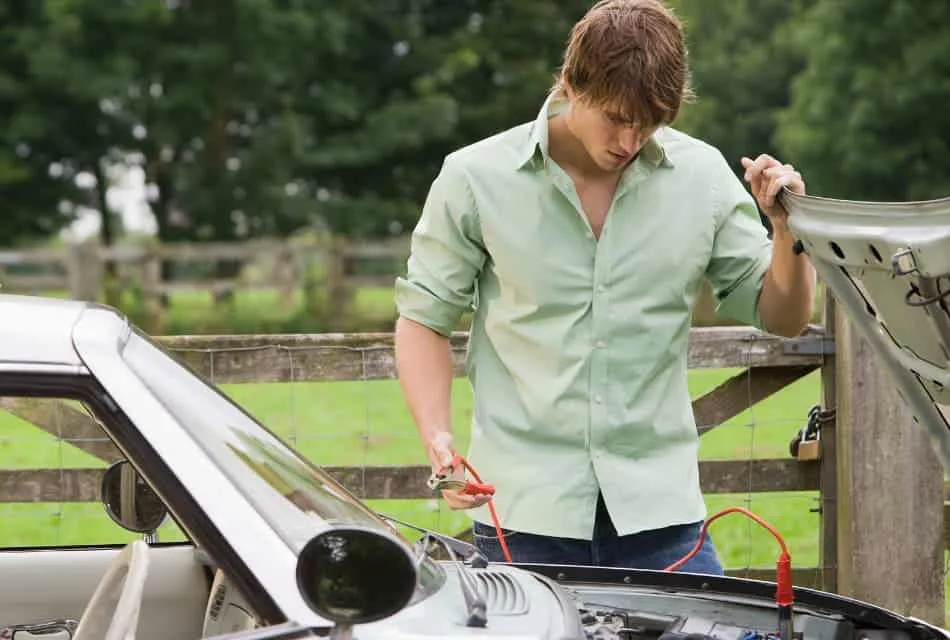Cars need at least 12.6 Volts to function optimally. Anything below that reduces car performance, therefore, having an amplifier that drains your car battery will negatively impact your driving experience. Nonetheless, several sources have cited claims about aftermath amplifiers draining car batteries. Does amplifier drain car battery? Here are some reasons why your car amplifier drains your battery, consequences, and tested ways to prevent car amplifiers from draining your battery.
According to research, Your car amplifier will drain your car battery as long as the amp is connected to it. Most car accessories, including the amp, are powered by the car battery, which suggests that even when you turn off your car, your amp can still drain your battery. However, the car amp doesn’t drain more than it needs from the battery, unless it is a powerful audio system, functions on auto-power, or has worked for extended periods.
How do you prevent a car amplifier from draining your battery, and how does an amplifier drain your car battery? The answers to these questions will help you maximize your car amp while conserving the car battery for maximum motor performance.
GET EPIC DEALS ON AMAZON TODAY. UP TO 40% OFF.
Table of Contents
Reasons Why Your Amplifier Drains Your Battery
● Powerful Audio System
The first reason is quite obvious. Using a powerful audio system that seeps extra voltage from your car battery depletes it faster. Factory-installed amplifiers and stereo systems are made to match the power of the car battery. However, buying an additional amp or retrofitting your old amp can lead to an imbalance between your amplifier and car battery.
The amperage demand of your amplifier shouldn’t exceed what the alternator can provide at the time. Using powerful audio systems with high amp demand not only depletes your battery but also reduces the lifespan.
To make sure you’re not buying an amp that’ll put a strain on your battery, always calculate the total RMS of your amp by 13.8V.
● Long usage with powered-off engine
Do you use your amp with the engine powered off? if so, then you’re draining the car battery faster as the alternator is not available to charge the battery.
● Auto-Power
Advanced cars now combine key ignition and an auto-power feature that doesn’t require the ignition switch to function. It Powers on the car by a sensor or remote control, which suggests that your amp could be switched on by performing a different action that triggers the car.
Consequences Of A Drained Car Battery
Having an amplifier that drains your battery could affect the level at which the other car accessories and features function. Here’s are some consequences of a drained car battery.
1. Starts to Crank
The most common battery symptom, cranking, can be identified by your engine not starting. Your car simply cranks when you try to turn on the ignition switch. Keeping your battery charge and working at an optimal level safe you from emergency battery issues. A dead car battery could also be a security problem. Cars dying in areas with high crime rates could leave you exposed to criminals.
2. Wouldn’t start on some days
If your car isn’t starting, then the most likely culprit is your battery. In some cases, the car doesn’t crank, doesn’t start, and other electrical accessories never power up. An example is your headlights. Not coming on? Then your car battery needs recharging or replacement. However, it is advised to charge the battery before investing a lot of money in executing engine repairs. Monitor the amperage demand of your amp to make sure it doesn’t drain your car battery.
3. Constantly Jumping your car
Jumping your car when it doesn’t start is a common practice across the country. Car won’t start because of a dead battery? Jump it. However, research has shown that jumping your car battery has negative effects on your battery’s lifespan.
However, installing an amp that requires high electrical demand drains your battery faster, thereby leaving forcefully acclimatizing you with jumping your car. Jumping your car 3 times a week destroys your battery, so be sure to reduce the load on your battery to enhance durability.
4. Reduced functionality
A drained car battery reduces the functionalities of your car accessories. This could cause car accessories to shut off intermittently, without warning, thereby reducing your driving experience.
5. Lights dim when you use the Accelerator
A dying battery could cause your headlights to dim whenever you step on the accelerator. Your accelerator stresses your car battery and a reduction in your battery’s voltage manifests with dimming headlights. Full powered battery voltages mean good lighting when driving in dark places and a great driving experience at night. If you can, do a load test on your battery. If you notice your amp to be the culprit, take it out for a new one or add a new battery.
How To Prevent Your Amplifier From Draining Car Battery
● Replace Old Alternator
The average alternator produces between 80 to 120A, enough to power high RMS amplifiers. If your alternator cannot handle the demand of your new alternator, then buying a new one is the right option. By so doing, you reduce the load on your battery and provide a newer alternator that keeps your battery charged in motion. Replacing your old alternator is crucial if you have more than one alternator in your car.
● Install Secondary Battery
If you must use a high RMS amp in your car, then you must install a secondary battery and battery alternator to keep the primary battery minimally utilized. The primary battery powers on the car and charges the secondary battery which keeps your amp running. Installing a secondary battery is highly recommended for cars with more than one amplifier.
● Buy new battery
While most aftermath car amplifiers weaken car batteries, a strong and healthy battery with at least 13.8V will do a good job at powering your amp. Therefore, buy a new battery for your new aftermath amp.
When Looking out for a new battery, also check for some important symbols that indicate its authenticity. Two important indicators to look out for are: Ah (Ampere Hours) and CCA (Cold-cranking Amps). The Ah symbol indicates the number of hours your battery is capable of supplying your car with 12V power.
Look for batteries with higher Amperage Hours to enjoy hours of nonstop music in your car. The second symbol, CCA indicates the number of amps a car battery can deliver before falling under 7.2V in the space of 30 seconds.
Should you Install A Secondary Battery
A dedicated car battery helps to keep your stereo and amp running with your engine off. It also keeps other connected accessories alive and allows you to enjoy several features of your car without having to turn on your engine.
Do you travel frequently or spend most of your time in your car, parked somewhere waiting on an order, or reading, then installing a secondary battery would be a great idea.
However, installing a secondary battery can negatively impact your vehicle’s alternator. An alternator charges your battery, with that primary battery becoming a load after it has helped to start your car. Older alternators have a harder time handling newer batteries.
An additional battery would simply add extra load on your alternator which could be disastrous if your alternator is not powerful enough to handle such load.
Before adding a new battery to your car, check to see if your alternator is strong enough to handle both loads.
In conclusion, factory-installed amps (OEM) do not drain your car battery, unless used over long extended periods with a powered-off engine.
On the other hand, aftermath amps put have more RMS, thereby placing more demand on your battery which drains the battery faster. As an alternative, you should either manage your OEM install amp-stereo or add a secondary battery.




